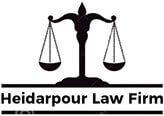4 Telemarketing Abuse Elements To Record for Your Lawyer

Life can be stressful if you have a debt and have fallen behind with payments due to financial challenges. The situation gets worse if a creditor hires a debt collector to pursue the amount you owe. While debt collectors can contact debtors, the Telephone Consumer Protection Act (TCPA) protects against phone harassment.
Report any telemarketing abuse by a debt collector to a consumer law lawyer. When you do, your will attorney need critical information to build a strong case against a debt collector’s defense. This post highlights vital materials to gather from telephone interactions with a debt collector and share with a lawyer.
1. Frequency of Telephone Calls
A debt collector must violate the TCPA in order for a telemarketing abuse accusation to hold up in court or before the Federal Communications Commission (FCC). However, some consumers are unaware of the new rules regarding debtor collector calls and unwittingly expose themselves to telemarketing harassment. The limits in the new guidelines give you control over the number of calls you receive to protect your privacy.
Consumer lawyers need sufficient evidence to develop a compelling telemarketing harassment case. Therefore, information on the frequency of calls is vital in determining whether a case meets the threshold for abuse. Additionally, call records assist a lawyer to calculate the amount of compensation to receive from each illegal contact a debt collector makes. Fortunately, modern phones store call data for quick retrieval.
2. Auto-Dialed Calls
The US debt collection industry is highly competitive. Therefore, companies use different tactics to stay ahead of rivals, including automatic telephone dialing systems. Auto-dial allows debt collectors to call multiple clients to maximize commissions and manage operational costs. However, automated calls are illegal under the TCPA, 47 USC section 227. Therefore, establish whether a debt collector has used the system to contact you.
Although the law helps consumers fight against spam calls, you remain vulnerable to privacy invasion and telemarketing abuse if you cannot identify an auto-dialed call. A simple way to detect an auto-dialed call is to listen for a slight but noticeable pause before a conversation starts. Even if you only receive an auto-dialed call once, inform your lawyer because it is considered telemarketing abuse.
3. Identification Information
The TCPA requires debt collectors to reveal their identity during calls to protect consumers from parties that misrepresent themselves as a government agency or a law firm. However, stay alert since some debt collection agencies use identity misrepresentation to get consumers to act a certain way despite its illegality under the TCPA. A caller is not obliged to provide their name but should state the identity of the agency they represent.
Since it is impossible to ascertain a caller’s claim regarding their agency’s identity, most people easily believe such assertions. In particular, consumers who have never interacted with debt collection agencies are vulnerable. Therefore, note every detail about the identification information a debt collector provides, especially in the first interaction. A lawyer needs the material to determine whether to include misleading misrepresentation in a case.
4. Requests to Stop Calls
Some people are unaware that debt collection agencies are supposed to stop communication once a consumer requests so in writing. Unfortunately, the lack of knowledge about consumer rights emboldens some debt collectors who persist with telemarketing abuse. If your lawyer considers it a wise course of action, instruct a collection agency to stop calling via a letter or certified mail.
Requests to have a debt collection agency halt communication are vital, especially if you do them in writing. The records establish that you found calls invasive, which violated your rights.
If a debt collector has violated your rights, contact us for professional advice and representation on telemarketing abuse.
